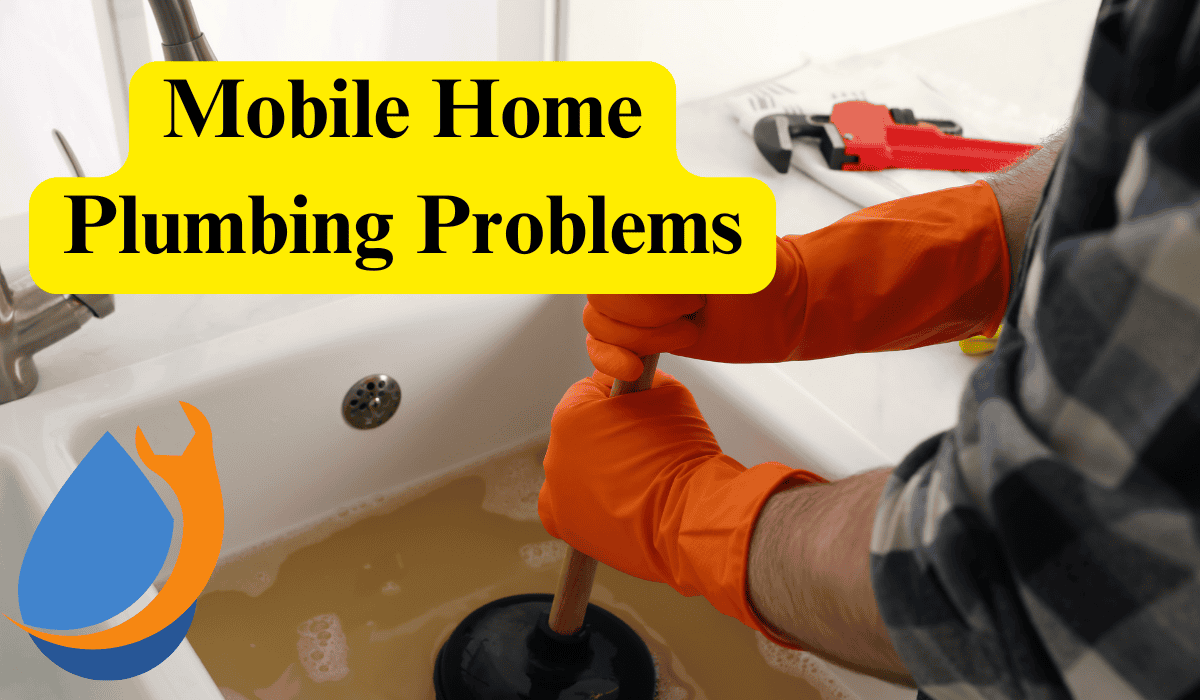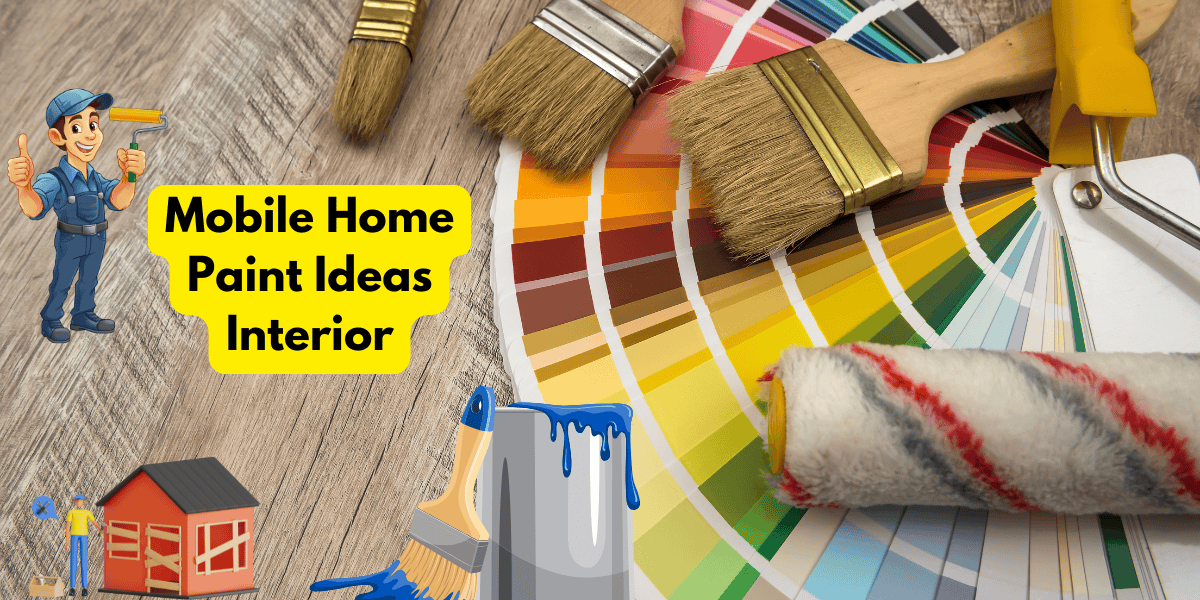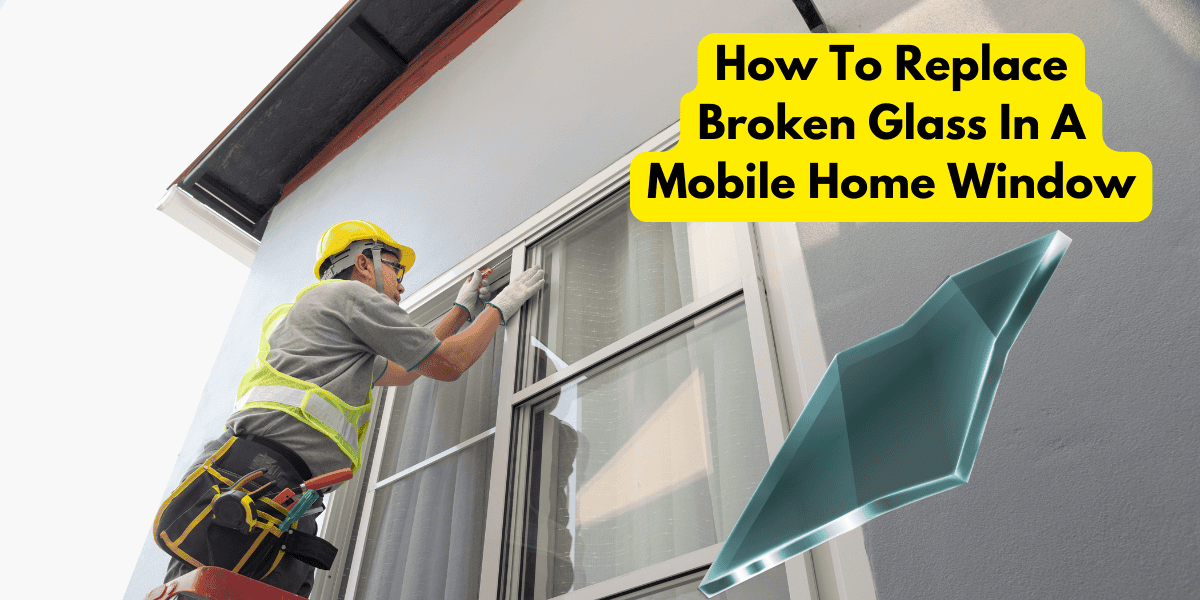Hello guys,
Mobile Home Plumbing Problems- In this article, we’ll explore some of the most common plumbing issues that mobile homeowners face, from the pesky to the downright disastrous. Whether it’s a leaky pipe, a stubborn clog, or a mysterious lack of water pressure, mobile home plumbing problems can put a serious damper on your journey. But fear not! We’ll also delve into practical solutions and handy tips to help you tackle these problems head-on and get back to enjoying the open road with confidence.
Mobile Home Plumbing Problems
Imagine your home without plumbing—it’d be like a car without wheels, right? Plumbing is like the invisible superhero of your house, working quietly behind the scenes to keep things flowing smoothly.
First off, let’s talk about convenience. Plumbing brings water where you need it, when you need it. No more lugging buckets of water from a well or trekking to the nearest stream for a drink. With plumbing, you can turn on a tap and voilà—water at your fingertips for drinking, cooking, washing, and all the other daily tasks that keep life rolling.
But it’s not just about convenience; it’s also about health and hygiene. Good plumbing means clean water for drinking and bathing, helping to keep you and your family safe from nasty germs and diseases. Plus, proper plumbing ensures that wastewater is whisked away efficiently, preventing nasty backups and keeping your home smelling fresh as a daisy.
Mobile Home Plumbing Problems
Mobile Home Plumbing Problems- Now, let’s zoom in on mobile homes specifically. These little abodes on wheels come with their own set of plumbing challenges. Unlike traditional houses, mobile homes need plumbing systems that can withstand the bumps and jolts of life on the road. That means sturdy pipes, secure fittings, and clever design to minimize the risk of leaks and breaks.
And let’s not forget about the unique layout of mobile homes. With limited space to play with, every inch counts. Smart plumbing design can help maximize space while still delivering all the comforts of home. Think compact fixtures, efficient layouts, and maybe even a nifty water-saving gadget or two.
But perhaps the most important reason why plumbing is essential for mobile homes is safety. A leaky pipe or faulty fitting might not seem like a big deal at first, but in a confined space like a mobile home, even a small water problem can quickly turn into a big disaster. Properly installed and maintained plumbing can help minimize the risk of accidents and keep you and your home safe on your travels.
So there you have it—plumbing might not be the flashiest feature of your mobile home, but it’s definitely one of the most important. From convenience to health to safety, good plumbing is the backbone of a happy and comfortable home, whether it’s on wheels or not.
Unique Challenges in Mobile Home Plumbing
Mobile homes often have limited space for plumbing fixtures and systems. Furthermore, they require plumbing materials that can withstand movement and flexibility to accommodate the home’s transportability.
Common Plumbing Problems in Mobile Homes
Clogs, pipe corrosion, and leaks are common issues faced by mobile homeowners. Understanding these problems and addressing them promptly can prevent further damage to the plumbing system.
Environmental Impact of Mobile Home Plumbing
Water conservation measures and eco-friendly plumbing options can minimize the environmental impact of mobile home plumbing. Implementing these practices not only benefits the planet but also reduces utility costs for homeowners.
Common Plumbing Problems In mobile Home
Leaks
One of the most prevalent issues in mobile home plumbing is leaks. These can occur in pipes, fittings, or fixtures and are often caused by wear and tear, corrosion, or improper installation. Leaks not only waste water but can also lead to water damage and mold growth if left unchecked.
Low Water Pressure
Another common complaint among mobile homeowners is low water pressure. This can be due to various factors such as clogged pipes, sediment buildup in the water heater, or issues with the water pump. Low water pressure can make everyday tasks like showering and washing dishes frustratingly slow and inefficient.
Clogs
Clogged drains and pipes are a nuisance in any home, but they can be especially problematic in mobile homes where space is limited. Hair, soap scum, food particles, and other debris can accumulate in pipes, leading to slow drains or complete blockages. DIY remedies like plungers or drain snakes may help, but severe clogs may require professional intervention.
Frozen Pipes
In colder climates, mobile homeowners may encounter frozen pipes during winter months. When water freezes inside pipes, it expands, potentially causing pipes to burst and leading to costly water damage. Proper insulation and taking precautions to keep pipes warm can help prevent this issue.
Water Heater Problems
Malfunctioning water heaters can be a headache for mobile homeowners, resulting in issues like insufficient hot water, strange noises, or leaks. Common causes of water heater problems include sediment buildup, faulty heating elements, or issues with the thermostat. Regular maintenance and prompt repairs are essential to keep your water heater running smoothly.
Sewer Odors
Foul odors emanating from drains or plumbing fixtures can be a sign of sewer gas escaping into your home. This can occur due to dried-out P-traps, damaged vent pipes, or problems with the septic system. Addressing the root cause of sewer odors is crucial not only for comfort but also for health and safety reasons.
Backups and Blockages
Mobile Home Plumbing Problems- Mobile home plumbing systems are susceptible to backups and blockages, particularly in older homes with outdated plumbing systems. Tree roots, excessive grease, or foreign objects flushed down the drain can obstruct sewer lines, leading to sewage backups into the home. Prompt action is necessary to prevent contamination and damage to the property.
Understanding these common plumbing problems can help mobile homeowners identify issues early and take proactive steps to prevent or address them. Whether it’s fixing a leaky faucet or dealing with a stubborn clog, staying on top of plumbing maintenance is key to enjoying a comfortable and worry-free mobile home experience.
Leaky Fixtures and Pipes
A. Description of common sources of leaks, such as faucets, toilets, and pipes:
Leaky fixtures and pipes are notorious culprits in mobile homes, causing frustration and potential damage if left unchecked. Faucets, toilets, and pipes can all develop leaks over time due to wear and tear, corrosion, or improper installation.
Faucets
Dripping faucets are not only annoying but can also waste a surprising amount of water. Leaks typically occur around the faucet spout or handles due to worn-out washers, seals, or O-rings.
Toilets
Toilet leaks can be silent but costly. Common sources of leaks include worn-out flapper valves, faulty fill valves, or damaged tank components. A leaking toilet can waste hundreds of gallons of water per day and may go unnoticed until a high water bill arrives.
Pipes
Pipes can develop leaks at joints, connections, or due to corrosion. In mobile homes, where pipes may be subjected to movement and vibration during transport, leaks can occur more frequently. Common types of pipe leaks include pinhole leaks, cracks, or burst pipes.
B. Impact of leaks on water bills, structural integrity, and mold growth
The consequences of leaks extend beyond wasted water—they can also wreak havoc on your finances and home. Leaks can significantly inflate water bills, leading to unexpected expenses and financial strain. Moreover, leaks can compromise the structural integrity of your mobile home. Water seeping into walls, floors, and ceilings can weaken building materials, leading to rot, decay, and even structural damage over time.
Additionally, leaks create the perfect breeding ground for mold and mildew. Mold thrives in damp, humid environments, and once it takes hold, it can spread quickly throughout your home. Not only is mold unsightly and unpleasant-smelling, but it can also pose serious health risks, especially for individuals with allergies or respiratory issues.
C. Solutions for fixing leaks, including DIY repairs and professional assistance:
Fortunately, there are solutions for fixing leaks to prevent further damage and save water and money. For minor leaks, DIY repairs may suffice, but for more complex issues, professional assistance may be necessary.
DIY repairs
Fixing a leaky faucet or toilet may involve replacing worn-out washers, seals, or valves. DIY enthusiasts can find step-by-step guides and instructional videos online to tackle common plumbing repairs. However, it’s essential to have the right tools and knowledge to avoid causing further damage.
Professional assistance
For persistent leaks or complex plumbing problems, seeking help from a licensed plumber is advisable. Plumbers have the expertise and equipment to diagnose and repair leaks quickly and efficiently. While professional repairs may incur upfront costs, they can ultimately save you money in the long run by preventing water damage and costly repairs.
In conclusion, addressing leaky fixtures and pipes promptly is essential for preserving water, protecting your home’s structural integrity, and preventing mold growth. Whether you opt for DIY repairs or professional assistance, taking action to fix leaks can help you maintain a comfortable and efficient mobile home environment.
Low Water Pressure
A. Causes of low water pressure in mobile homes, such as clogged pipes or faulty fixtures:
Low water pressure can be a frustrating issue in mobile homes, making everyday tasks like showering, washing dishes, and doing laundry feel like a chore. Several factors can contribute to low water pressure, including:
Clogged pipes: Over time, mineral deposits, sediment, and debris can accumulate inside pipes, restricting the flow of water and reducing water pressure.
Faulty fixtures: Worn-out washers, seals, or cartridges in faucets, showerheads, and other fixtures can impede water flow and contribute to low water pressure.
Water pump issues: Mobile homes rely on water pumps to deliver water from the source to the fixtures. Malfunctioning pumps or insufficient pump capacity can result in inadequate water pressure.
Water supply issues: External factors such as municipal water supply problems, including low water pressure or water main breaks, can also affect water pressure in mobile homes.
B. Effects of low water pressure on daily activities and appliance performance:
Low water pressure can disrupt various daily activities and affect the performance of household appliances. Some of the effects of low water pressure include:
- Slow or weak flow from faucets and showerheads, making tasks like washing dishes and showering less efficient and enjoyable.
- Inadequate flushing of toilets, which can lead to repeated flushing attempts and potential toilet clogs.
- Difficulty filling pots and pans, washing machines, and other appliances that require a steady stream of water.
- Reduced effectiveness of water-based appliances such as dishwashers and washing machines, which may not function optimally with insufficient water pressure.
C. Methods for troubleshooting and improving water pressure, such as cleaning aerators and checking for leaks:
Fortunately, there are several methods for troubleshooting and improving low water pressure in mobile homes:
Clean aerators and showerheads: Mineral deposits and sediment can accumulate in aerators and showerheads, causing blockages that restrict water flow. Removing and cleaning these components can help improve water pressure.
Check for leaks: Inspect pipes, fixtures, and connections for signs of leaks, as even small leaks can contribute to low water pressure. Repairing or replacing leaky components can restore water pressure.
Flush the plumbing system: Flushing the plumbing system can help dislodge built-up sediment and debris, improving water flow and pressure. To flush the system, turn off the water supply, open all faucets and fixtures, and then turn the water supply back on to flush out the pipes.
Upgrade water pump or pressure regulator: If low water pressure persists despite troubleshooting efforts, consider upgrading the water pump or installing a pressure regulator to increase water pressure to the desired level.
By identifying the underlying causes of low water pressure and implementing appropriate solutions, mobile homeowners can enjoy improved water flow and performance in their homes.
Clogged Drains
A. Types of drains prone to clogging in mobile homes, such as kitchen sinks and shower drains:
In mobile homes, various types of drains are susceptible to clogging due to the accumulation of debris, grease, soap scum, and other substances. Some common types of drains prone to clogging include:
Kitchen sinks: Kitchen sinks are notorious for collecting food particles, grease, and cooking oil, which can build up over time and cause blockages in the drain pipe.
Shower drains: Shower drains can become clogged with hair, soap residue, and mineral deposits from hard water. As water flows down the drain, these materials can accumulate and form obstructions that impede drainage.
Bathroom sinks: Bathroom sinks may also experience clogs due to toothpaste residue, hair, and other grooming products that are rinsed down the drain.
toilet drains: While toilets are designed to handle waste, they can still become clogged with toilet paper, sanitary products, or foreign objects flushed down the toilet.
B. Consequences of clogged drains, including slow drainage, foul odors, and potential backups:
Clogged drains can lead to various unpleasant consequences that disrupt daily life and compromise the functionality of mobile homes. Some of the consequences of clogged drains include:
Slow drainage: One of the most noticeable signs of a clogged drain is slow drainage, where water takes longer than usual to empty from sinks, showers, or tubs.
Foul odors: Accumulated debris and organic matter in clogged drains can emit foul odors, making the surrounding area unpleasant to be in.
Potential backups: If left untreated, clogged drains can cause water to back up into sinks, tubs, or toilets, leading to messy and unsanitary conditions.
Damage to plumbing fixtures: Persistent clogs can put added pressure on plumbing fixtures and pipes, increasing the risk of leaks, cracks, or burst pipes.
C.Techniques for unclogging drains, such as using plungers, drain snakes, or chemical cleaners:
Fortunately, there are several techniques for unclogging drains and restoring proper drainage in mobile homes:
Plungers: Plungers are a simple yet effective tool for dislodging minor clogs in sinks, tubs, and toilets. By creating a vacuum seal over the drain opening and applying pressure, plungers can help break up blockages and restore normal flow.
Drain snakes: Also known as plumbing augers, drain snakes are flexible, coil-like tools that can reach deep into drain pipes to dislodge stubborn clogs. By rotating the snake and maneuvering it through the pipe, you can break apart or pull out obstructions causing the blockage.
Chemical cleaners: Chemical drain cleaners can be effective for dissolving organic matter and debris causing clogs. However, they should be used with caution and according to manufacturer instructions to avoid damaging pipes or harming the environment.
Homemade remedies: Alternatively, homemade solutions like baking soda and vinegar or hot water and dish soap can help break down minor clogs and improve drainage.
By employing these techniques, mobile homeowners can address clogged drains promptly and prevent further plumbing issues in their homes.
Frozen Pipes
A. Explanation of why frozen pipes are a concern in mobile homes, especially during cold weather:
Frozen pipes pose a significant concern in mobile homes, particularly during cold weather, due to the unique characteristics of these dwellings. Unlike traditional homes, mobile homes may have less insulation and protection against extreme temperatures, making them more susceptible to freezing pipes. Additionally, mobile homes may be raised off the ground, exposing the plumbing underneath to colder temperatures and increasing the risk of freezing.
B. Risks associated with frozen pipes, including bursts and water damage:
The risks associated with frozen pipes are serious and can result in costly damage to the mobile home and its plumbing system. When water inside pipes freezes, it expands, exerting pressure on the pipe walls. This increased pressure can cause pipes to burst, leading to extensive water damage and flooding inside the home. Burst pipes can also result in significant repair costs and inconvenience for homeowners.
C. Preventative measures to protect pipes from freezing, such as insulating exposed pipes and leaving faucets dripping:
To prevent frozen pipes and the associated risks, mobile homeowners can take proactive measures to protect their plumbing system during cold weather:
Insulate exposed pipes: Insulating exposed pipes with foam pipe insulation or heat tape can help prevent them from freezing. Focus on pipes located in unheated areas such as crawl spaces, under the mobile home, or along exterior walls.
Seal cracks and openings: Seal any cracks or openings in the skirting or underbelly of the mobile home to prevent cold air from entering and freezing pipes.
Keep the home heated: Maintain a consistent temperature inside the mobile home, even when away, to prevent pipes from freezing. Set the thermostat to at least 55 degrees Fahrenheit or higher during cold weather.
Allow faucets to drip: Allowing faucets to drip slightly can help relieve pressure inside pipes and prevent them from freezing. Dripping faucets can also provide a continuous flow of water, which is less likely to freeze.
Open cabinet doors: Open cabinet doors under sinks to allow warm air to circulate around pipes, especially those located along exterior walls.
By implementing these preventative measures, mobile homeowners can reduce the risk of frozen pipes and protect their plumbing system from damage during cold weather. Taking proactive steps to safeguard against freezing temperatures can help ensure a safe and comfortable living environment year-round.
Septic System Issues
A. Overview of common septic system problems in mobile homes, such as backups and odors:
- Septic system issues are common in mobile homes due to factors like limited space, soil conditions, and usage patterns.
- Common problems include sewage backups into the home, foul odors emanating from drains or the septic tank, and slow drainage in sinks and toilets.
- These issues can arise from a variety of causes, such as clogged pipes, tank overflows, or leach field failure.
B. Importance of regular maintenance and inspection to prevent septic system failures:
- Regular maintenance and inspections are crucial for preventing septic system failures in mobile homes.
- Routine pumping and cleaning of the septic tank help remove solid waste buildup and prevent clogs and backups.
- Inspections can identify early signs of problems, such as leaks, cracks, or drainage issues, allowing for timely repairs before they escalate into major failures.
- Proper care and attention to the septic system can extend its lifespan and ensure efficient operation for years to come.
C. Solutions for addressing septic system issues, including pumping, repairs, and professional assistance:
- Pumping the septic tank on a regular schedule is essential for preventing backups and maintaining proper functioning.
- In cases of clogs or blockages, professional assistance may be required to diagnose and address the problem effectively.
- Repairs may involve fixing damaged pipes, replacing faulty components, or repairing the leach field to restore proper drainage.
- It’s important to consult with a licensed septic system professional for any repairs or maintenance tasks to ensure they are performed correctly and in compliance with local regulations.
By staying proactive with maintenance and addressing septic system issues promptly, mobile homeowners can prevent costly failures, protect their property, and ensure a sanitary and healthy living environment.
DIY Plumbing Repairs vs. Professional Assistance
While some plumbing repairs can be tackled by homeowners, others may require professional expertise. Knowing when to call a plumber ensures the safety and effectiveness of the repair work.
Cost Considerations
Initial installation costs and long-term savings through proper maintenance should be considered when planning for mobile home plumbing. Investing in quality materials and professional installation can lead to significant savings over time.
Importance of Proper Installation
Proper installation of plumbing systems is crucial in mobile homes to avoid leaks, water damage, and other issues. A well-installed system ensures the longevity and efficiency of the plumbing, reducing the need for repairs in the future.
Maintenance Tips for Mobile Home Plumbing
Mobile Home Plumbing Problems- Regular inspections and prompt attention to minor issues are essential for maintaining mobile home plumbing. Simple tasks such as checking for leaks and ensuring proper drainage can prevent costly repairs down the line.
Regulatory Requirements
Compliance with local building codes and permitting processes is essential when installing or modifying mobile home plumbing systems. Adhering to regulations ensures the safety and legality of the plumbing work.
Improving Efficiency
Upgrading fixtures, appliances, and insulation can improve the efficiency of mobile home plumbing systems, leading to lower utility bills and a smaller environmental footprint.
Ensuring Safe Drinking Water
Installing filtration systems and regularly testing for contaminants ensures that mobile homeowners have access to clean and safe drinking water.
Future Trends in Mobile Home Plumbing
Advancements in technology and sustainable practices are shaping the future of mobile home plumbing. From smart fixtures to water-saving innovations, the industry is constantly evolving to meet the needs of homeowners.
Conclusion
Mobile Home Plumbing Problems- In conclusion, plumbing plays a vital role in mobile homes, ensuring access to clean water and proper waste disposal. By understanding the unique challenges and importance of mobile home plumbing, homeowners can take proactive steps to maintain and improve their plumbing systems, ensuring comfort, safety, and efficiency.
A. Recap of the importance of addressing plumbing problems promptly in mobile homes:
- Addressing plumbing problems promptly in mobile homes is crucial for maintaining the functionality, safety, and comfort of the living space.
- Prompt attention to plumbing issues can prevent water damage, mold growth, and health hazards, safeguarding the integrity of the home and the well-being of its occupants.
- Ignoring plumbing problems can lead to costly repairs, property damage, and inconvenience, underscoring the importance of swift action and proactive maintenance.
B. Encouragement for mobile home owners to stay vigilant, perform regular maintenance, and seek professional help when needed:
- Mobile home owners are encouraged to stay vigilant and proactive in maintaining their plumbing systems to prevent problems before they arise.
- Performing regular inspections, addressing minor issues promptly, and scheduling routine maintenance can help identify and mitigate potential plumbing problems early on.
- When faced with complex or serious plumbing issues, mobile home owners should not hesitate to seek professional help from licensed plumbers or contractors.
- By taking a proactive approach to plumbing maintenance and seeking professional assistance when needed, mobile home owners can ensure a safe, comfortable, and trouble-free living environment for themselves and their families.
Frequently Asked Questions
What should I do if I suspect a leak in my mobile home plumbing?
If you suspect a leak, turn off the water supply and contact a plumber to assess and repair the issue
Can I install a water filtration system in my mobile home?
Yes, water filtration systems can be installed in mobile homes to ensure safe and clean drinking water
What is the most common problem in the plumbing system?
The most common problem in plumbing systems is leaks.
-
Mobile Home Paint Ideas Interior
Mobile Home Interior Paint Ideas (Transform Your Space with Color) Mobile Home Paint Ideas Interior: When it comes to decorating your mobile home, one of the most impactful and budget-friendly ways to transform your space is through paint. A fresh … Read More
-
How To Replace Broken Glass In A Mobile Home Window
Replacing broken glass in a mobile home window can be straightforward if you follow these steps. Here’s a guide to help you:-




